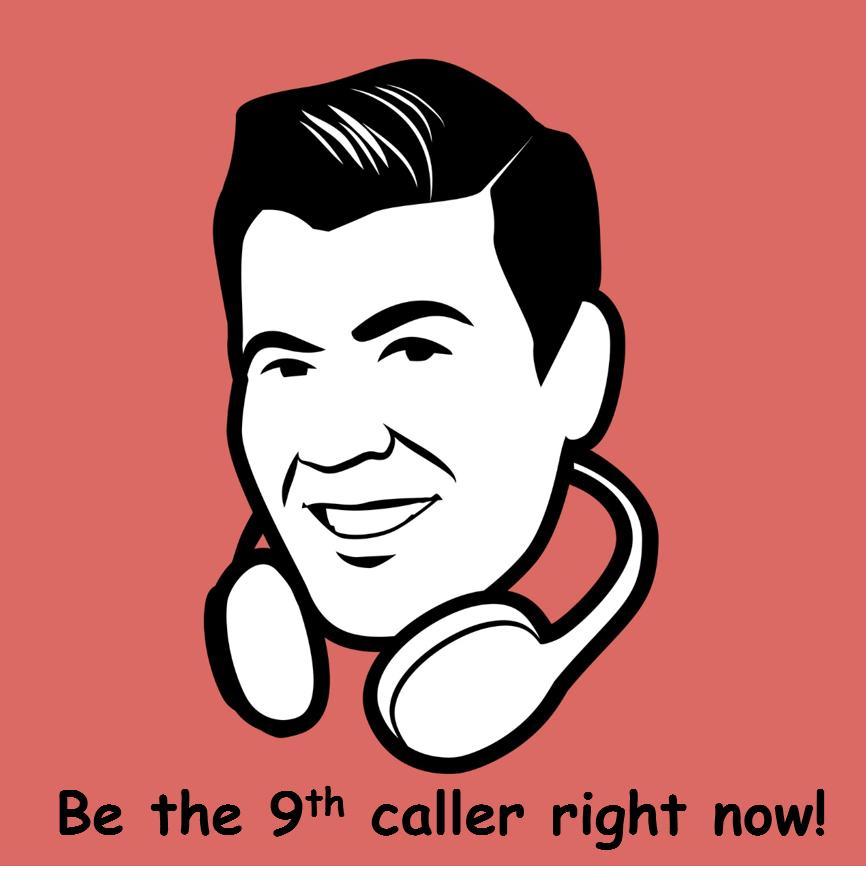
While getting older kind of sucks, one of the benefits of having been around a long time is perspective. Like watching fashions come into style, go out of style, and then nostalgically return for an encore helps you understand cycles and how they work.
My staff regularly feeds me stories mostly from around the web they think I’ll (and you) might find interesting. At times, they run in patterns or themes, much in the same way we take in CES each January in Las Vegas.
Over the weekend, I started noticing some of those common threads pointing to radio contests and promotions. No, AM (and later FM) didn’t invent contests and giveaways any more than Publisher’s Clearinghouse created the sweepstakes. But radio popularized them, especially when it came to using the phone to enter, qualify, and/or be an instant winner.
“Be my 9th caller right now” may be one of the great radio clichés, but that’s because the methodology became universal wherever you lived while listening to a commercial radio station. In fact, radio stations established a number of popular tactics I’m seeing big brands using successfully right now.
While it may be flattering to learn, for example, that 7-Eleven has templated a common radio contest right down to its logo, radio broadcasters can learn from watching the big boys and girls execute smart, strategic promotions.
And let’s face it, these brands are going to have superior resources – research, data, people (?) – than most radio organizations are likely to have. Especially at this moment in time when radio is facing serious, existential challenges.
What can we learn by shadowing the big players, and find ways to turn their marketing into best practices for our station? And what will Paige Nienaber say about this post?
1. Conventional contesting – Speaking of 7-Eleven, it turns out they’re running a contest right now called “Turn Up,” along with Speedway and Stripes stores. Notice anything interesting about the contest’s name and logo?
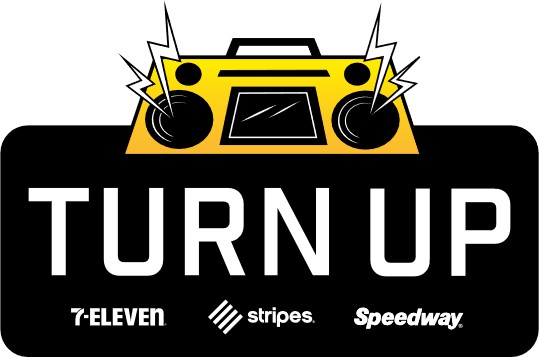
And that’s not all. 7-Eleven’s contest has the architecture of radio giveaways. It is focused on their P1s – members of the brand’s loyalty club.
A story about the giveaway in CStore Decisions also tells the prize is a familiar theme – a chance to score tickets to concerts (and other events) for a year using Live Nation gift cards.
7-Eleven’s EVP/chief marketing and sustainability officer, Marissa Jarratt, notes how nearly three in four target customers describe themselves as “music lovers” or “obsessed with music.” As she notes, “it’s a no-brainer for us.”
2. Secret prizes/mystery giveaways – Then there’s Delta – “the official airline of Jacobs Media” (not really, but they may as well be). Apparently, they’ve been running a stealth promotion for some time now, along the lines of decoder rings and secret handshakes.
It turns out Delta has been supplying the equivalent of trading cards to their cockpit crews. But they don’t publicize it.
A new story in Fortune reveals Delta’s mystery promotion:
“Delta has been keeping a secret for the past 20 years – and pilots really want you to ask about it”
The company’s pilots have handed out 1.5 million of these cards last year alone – but you have to be in on the deal.
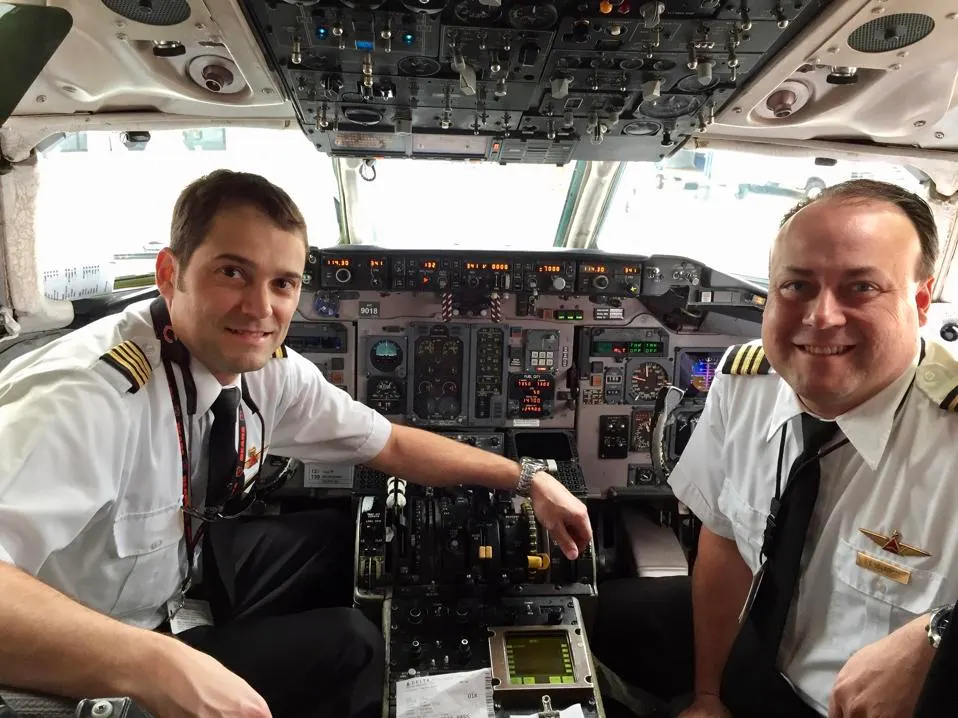
Fortune reporter Rachel Ventresca quotes a Delta pilot who refers to the program as “a viral cult phenomenon.” And now the cards are making appearances all over social media including this TikTok video about how to get a card, now viewed by more than 3 million interested consumers.
@sarowarrr Got my first trading card!!! Ask your pilot for one before or after your flight! #delta #tradingcards #collectibles ♬ original sound – SAROWAR
I’ll say. I just celebrated my 40th anniversary in Delta’s frequent flyer program, I’ve flown more than 3.6 million miles during the time, and I’m on 6-10 Delta planes a month.
And I didn’t have a clue this was going on while I was entranced watching Delta’s safety video for the umpteenth time.
The promotion was hatched internally back in 2003 by a team of Delta flight operations workers. Delta now updates the cards every few years. Their artwork is voted on by the airlines’ staff of nearly 17,000 pilots.
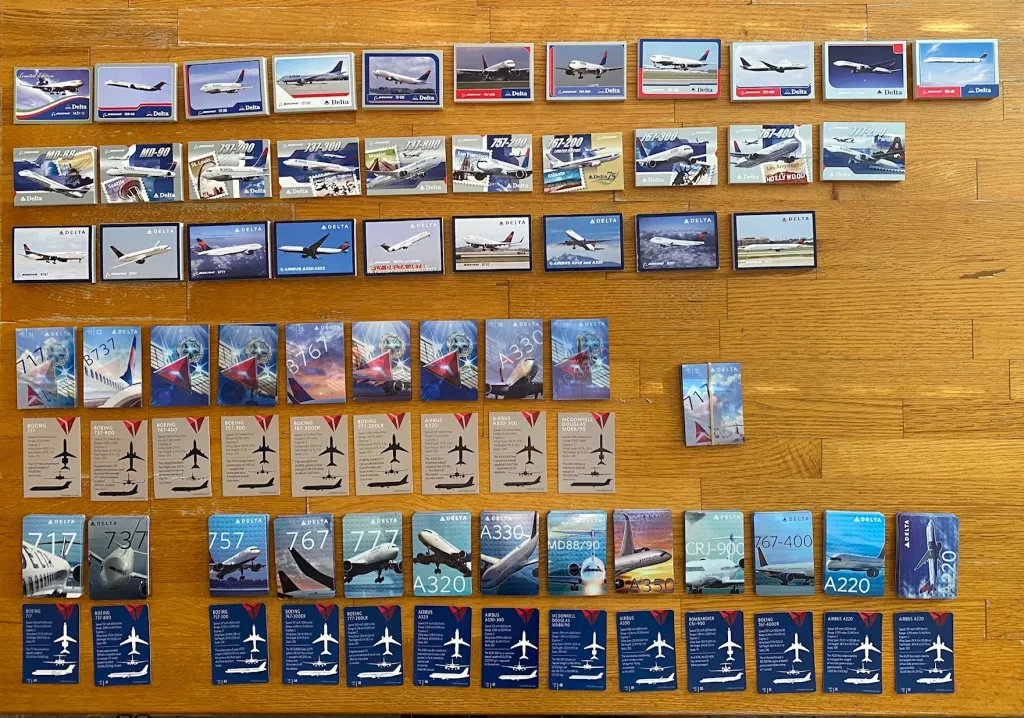
And of course, I tried it yesterday on one of my two Delta flights. On the first, the cockpit door wasn’t open when we deplaned. But on the second I stuck gold – two Delta cards (pictured below), and the pleasure of meeting and chatting with Captain Jim Lussier.
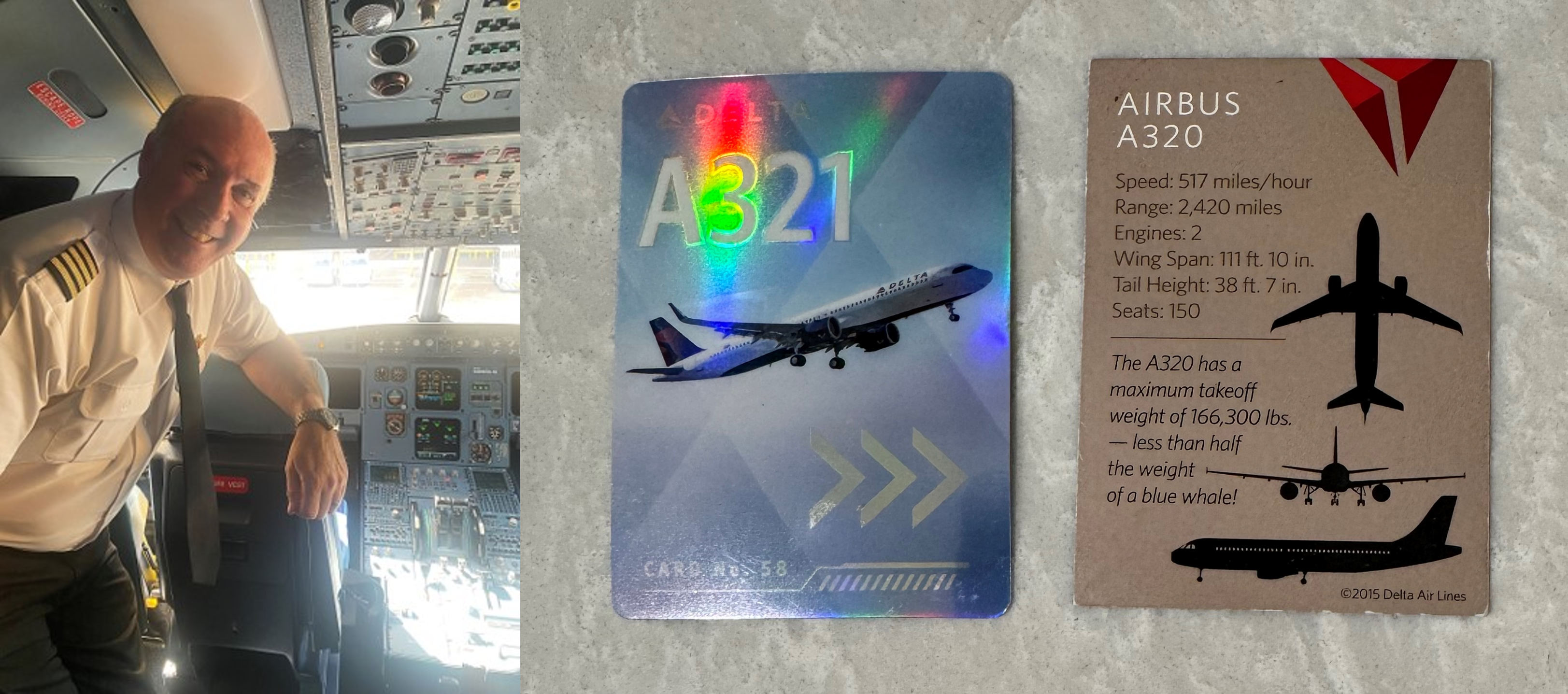
He invited me into the cockpit where I came to find out his father worked in radio, even owning an AM station in Woonsocket, Rhode Island, WNRI. The cards proved to be a gateway to me becoming even more closely connected to the Delta brand.
Forbes reports that as word gets out about these collectibles, cockpit crews are running out, as I’ve also experienced on some recent flights.
A great problem to have.
3. The talk of the town – How many times do you remember hearing about a promotion where a mystery man dressed in wild clothes stepped out of a limo in the middle of town, handing out money – for no apparent reason? No call letters, no brand time – just buzz.
These promotions worked even without Instagram and Snapchat. That’s because people actually talked about the identity of the secret philanthropist. To a great degree, this is where the term “water cooler talk” took flight.
Back in the ’70s, radio stations did this zany stuff all the time – and it often worked. These days, however, people are too smart and savvy to be taken in by such an obvious stunt.
Or are they?
A story in the Providence Journal is just part of the media coverage surrounding tiny unicorns showing up in odd places all over town.
The paper ran an entire story on the phenomenon written by Amy Russo, along with a six-photo gallery comprised of citizens who have serendipitously found a unicorn (or two).
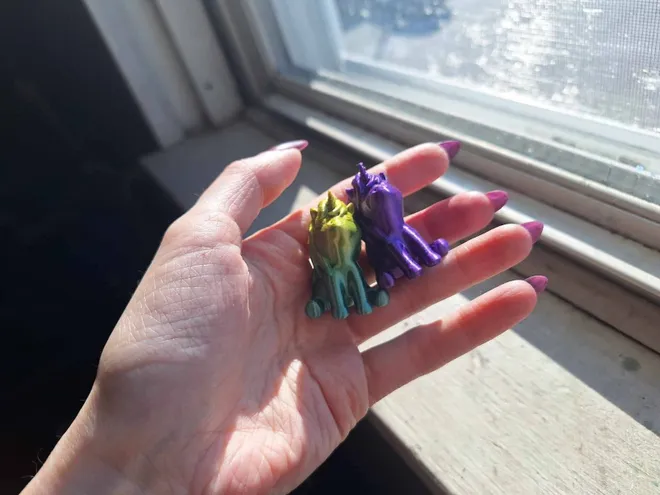
The unicorns are everywhere – on window sills, doorways, on steps, and just on the street.
The “finders” of these unicorns are reportedly experiencing great joy, even thinking they’re incredibly lucky to have come across these miniature beasts.
Now, thanks to social media, these Providence unicorns have gone viral – people in town are posting, texting, and talking about this citywide event.
“Scavenger hunt” promotions have been around as long as Top 40 radio, successful in all size markets. For example, an annual staple for rock monster KUPD in Phoenix is the “Big Red Easter Keg Hunt” where mass quantities of lager are hidden all over town.
Similar to “Christmas Wish” or “Cash Call,” these time-honored promotions keep coming back because they work.
Meanwhile back in Rhode Island, the locals expect these hot little unicorns are being cranked out with a 3-D printer. Whatever, they sure don’t cost much to make and place around town.
Reporter Russo tracks down the perpetrator/creator of these mysterious pieces of art as if she’s an investigative reporter digging deep into the third coming of Buddy Cianci. Instead, she’s tracking down the 3-D printer unicorn mystery. And a manager of a local art gallery reminds us, not every work of art is signed:
“Anonymous art is actually a very big tradition in art history…Almost the majority of arts that’s been made in history is actually anonymous,” notes Michael Rose.
And a local instructor, Scott Lerner, who teaches art at the famous RISD – Rhode Island School of Design – tells Russo that with 3-D printers all over the Brown University campus, it wouldn’t cost more than $200 to crank out the unicorns. “Truthfully, anyone could be doing this,” he admits.
Maybe even a local radio station.
There you have it – three massively successful promotions – for little-to-no-money. As the aforementioned Mr. Nienaber will tell you, it all comes down to execution, and some stations are certainly better than others.
But cardboard trading cars and 3-D generated objects aren’t cost-prohibitive. And as noted in a blog post last week, full-season lawn passes from Live Nation retail for $239. Maybe they’re cut you a deal or even set up a trade.
The bottom line is that you can put together winning promotions without hurting yours, even with a limited promotional budget. Or maybe with absolutely no marketing money whatsoever.
(You could always raid the coffee fund.)
- What To Do If Your Radio Station Goes Through A Midlife Crisis - April 25, 2025
- A 2020 Lesson?It Could All Be Gone In A Flash - April 24, 2025
- How AI Can Give Radio Personalities More…PERSONALITY - April 23, 2025




We are a noncom that gave away Pearl Jam tickets before they went on sale. You never know if you never ask, in a market with 4 other rock stations giving tickets to distant festivals and cash contests, I call that a win. Sort of a humble brag, but it’s encouragement for small markets, local vendors, promoters, and label reps, you’ll ensure brand loyalty while the rest focus on company loyalty.
My favorite line: “You never know if you never ask.”